Crisis-hit Venezuelans leave for Brazil in search of new life
- Published
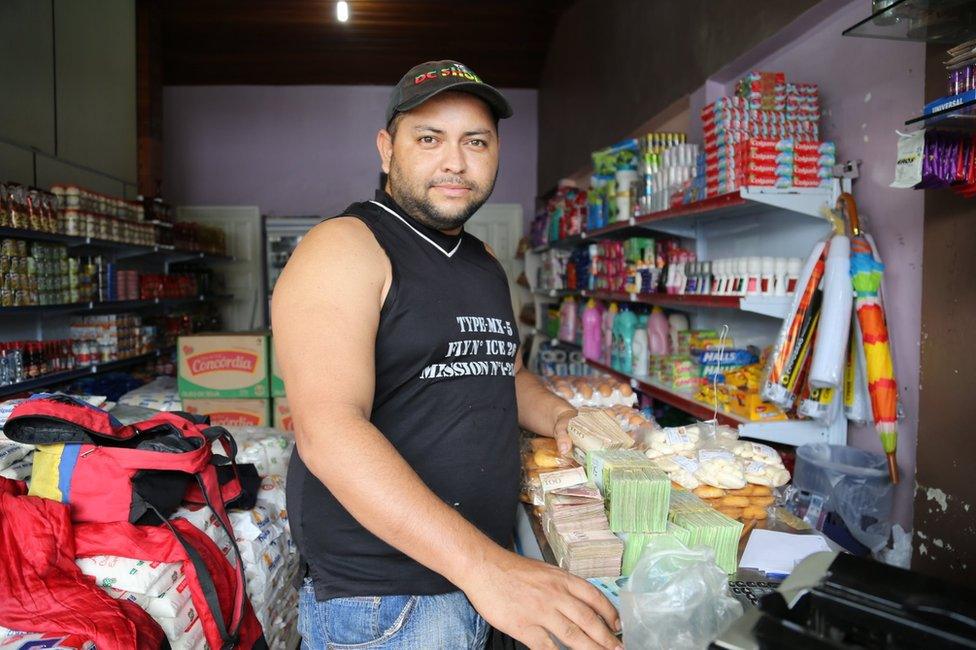
William Camero crosses the border every three days to buy sugar for his ice-cream parlour
In the Brazilian border town of Pacaraima, Venezuelan small business owner William Camero is emptying a rucksack decorated with the yellow, blue and red colours of the Venezuelan flag.
He pulls out big wads of Venezuelan currency - like rabbits out of a magician's hat. Each wad of 50,000 bolivares is worth less than $6 (£4.60) on the black market.
He piles the cash up on the counter until there are 25 bundles, a jenga tower of bolivares.
With the value of the bolivar at a record low, his 1.25m bolivares will get him just 14 sacks of sugar here in Brazil.
Mr Camero runs an ice-cream shop in Ciudad Bolívar, a 12-hour drive from Pacaraima.
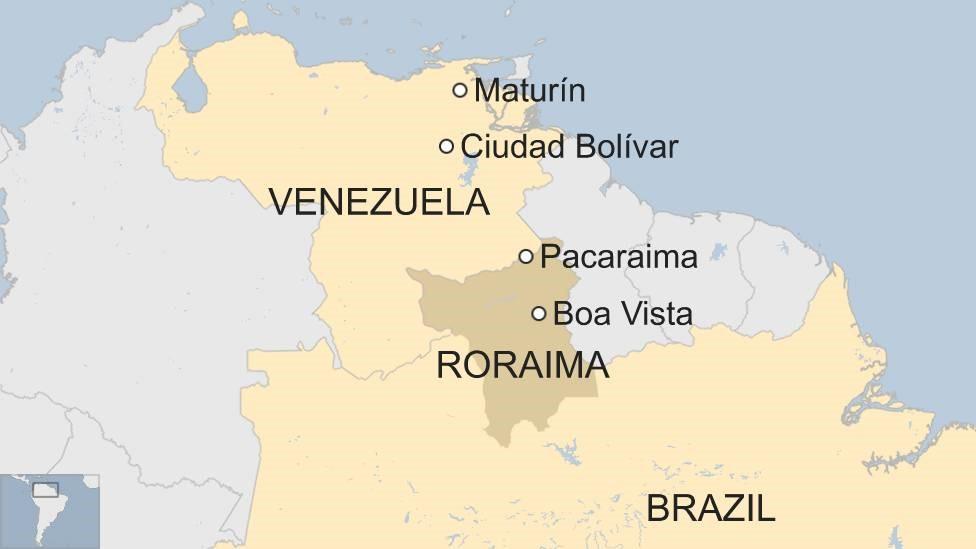
He travels to Pacaraima, on Venezuela's southern border, every three days to get the supplies he needs and cannot get in Venezuela.
With inflation spiralling higher and higher on an almost daily basis in Venezuela, spacing his trips out more would mean carrying even more cash, and robberies on the road are common.
"In Venezuela, you don't live, you survive," says Mr Camero. "Everyone knows that."
"In order to live you have to go to another country," he says, referring to the severe shortages of staple goods.
'You can't make ends meet'
Three hours' drive south from Pacaraima, in the Brazilian city of Boa Vista, queues start building outside the federal police station from six o'clock in the morning.
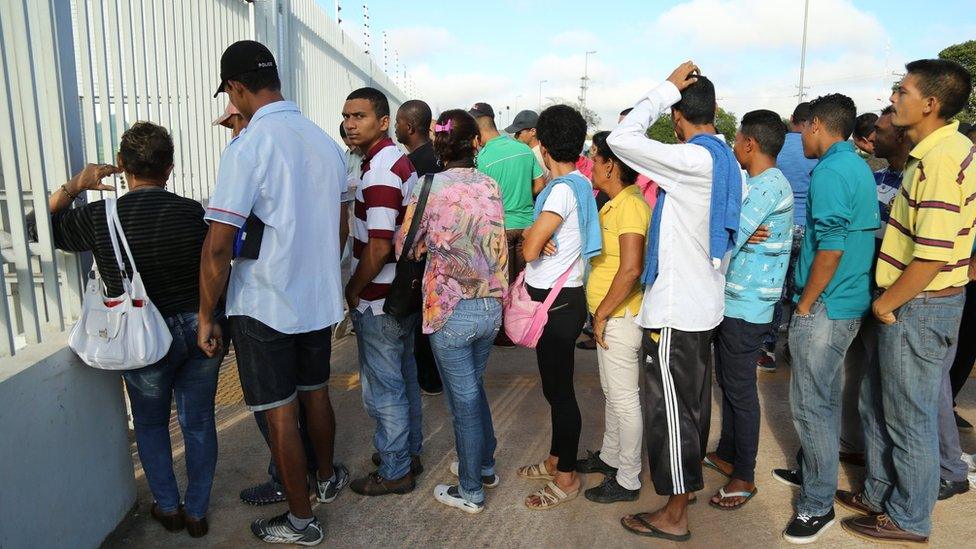
Venezuelans start queuing early to try and get work permits
Newly arrived Venezuelans wait in line to get registered so they can work in Brazil.
According to the Brazilian federal police, in the first half of this year, 6,438 Venezuelans asked for asylum in the state of Roraima.
The Brazilian city struggling to cope with asylum seekers
In 2016 as a whole, the number was 2,312, and in 2015 just 280.
There are a couple of little stands outside where people are charging $1.50 to help new arrivals fill in their forms.
Jorge, 21, is explaining on his form that he wants to stay in Brazil because there is no food or work in Venezuela.
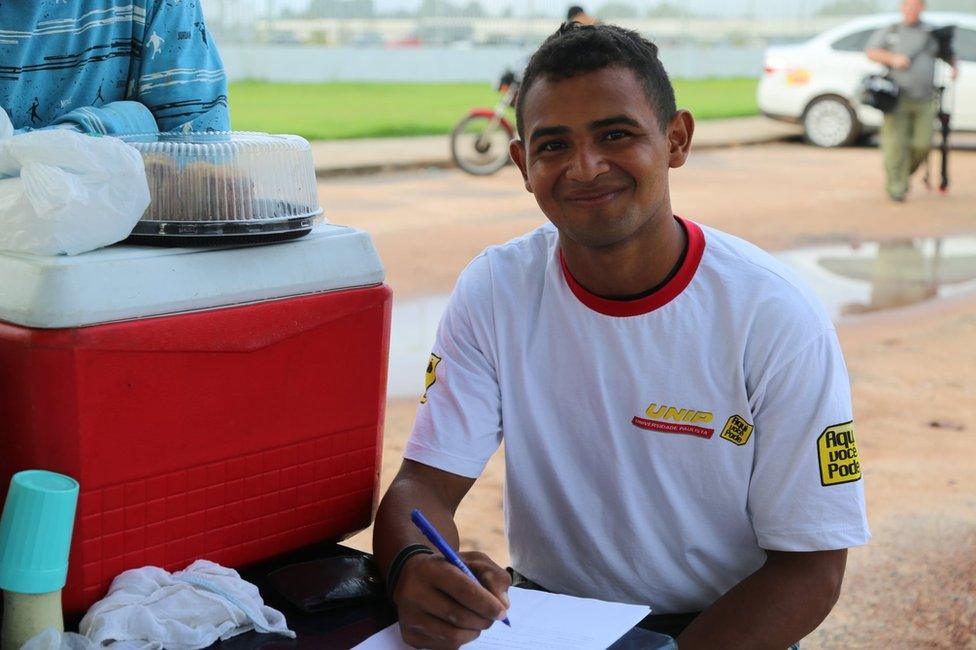
Jorge wants to stay in Brazil
"You can't make ends meet," he says. "They [the government] say the opposition is killing people but they are doing it."
His plan is to find a job, settle down and start a family here in Brazil. He does not want to return to Venezuela any time soon.
Avenida Venezuela is the road which connects Boa Vista with the Venezuelan border. At each crossing, there are Venezuelans trying to earn money.
One man has a sign around his neck which simply reads: "I'm looking for work."
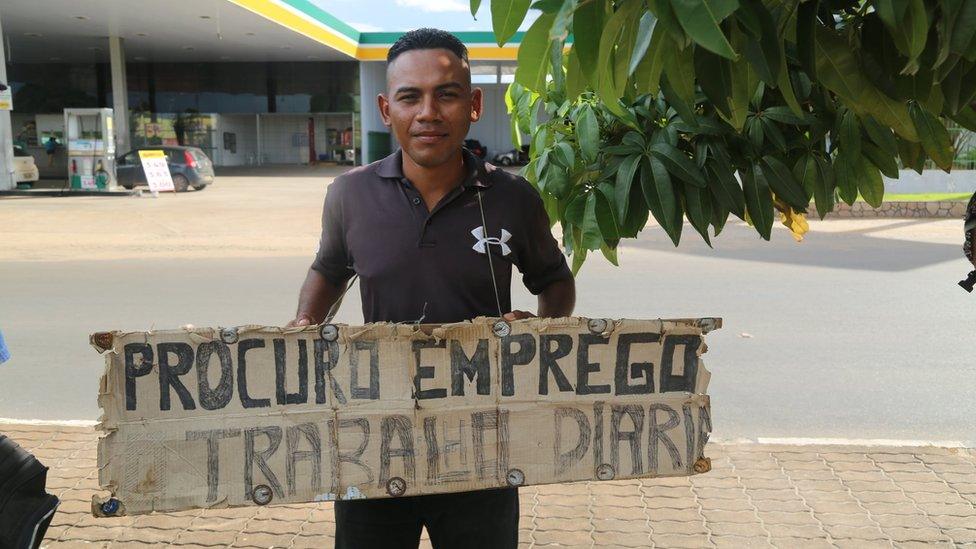
Many Venezuelans have crossed the border into Brazil looking for work
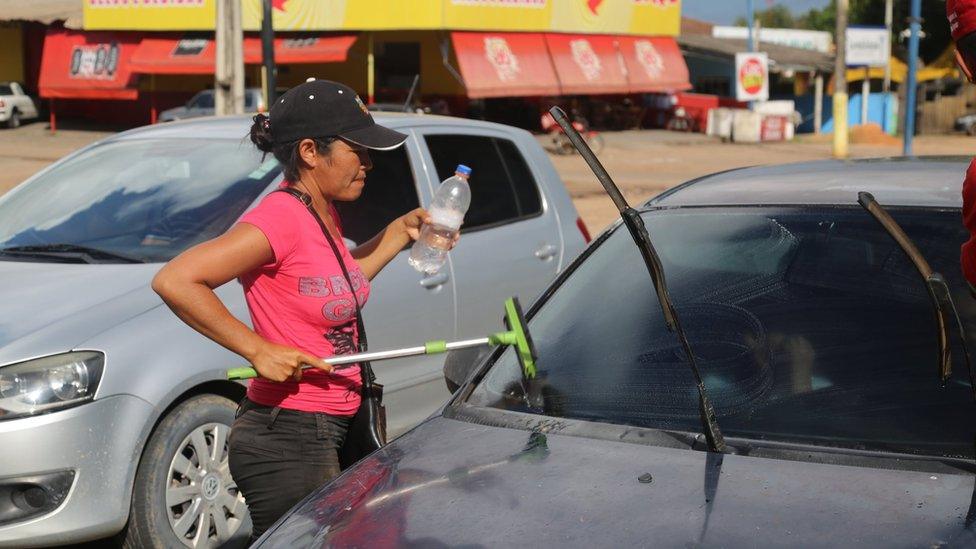
Delia Farías says she left Venezuela to be able to better provide for her children
Delia Farías is a mother of two with a degree in education. She washes car windscreens.
"I was thinking of my kids' future, how to provide them food, so they wouldn't die of malnutrition," she says, squeegee in hand.
Watch: Venezuela's child malnutrition crisis
"To pay for their medicine, if they're ill. In Venezuela, they don't give you anything," she says of the difficulties of getting hold of even basic medication and food in Venezuela.
'Don't look back'
In the centre of Boa Vista, by the town's food market, Claudia (not her real name) is waiting on the street corner, laughing and joking with female friends.
She is wearing a vest top with the words: "Don't Look Back". It could almost be a mantra for what she is going through.
The 22-year-old was a stay-at-home mum in the city of Maturín, in Venezuela. She came to Boa Vista a year ago and her mother and children recently joined her.
She is one of a growing number of Venezuelans working in the area of town locals call Ochenta (Spanish for 80). It refers to the price in the Brazilian currency that people pay for sex. It is about $25 (£19).
But with Brazil's economy in the doldrums, Claudia often has to accept less. Still, being a sex worker in Boa Vista offers her a better life here than the one she had back home in Venezuela, she says.
"We have more access to food because in Venezuela, there isn't any," she says.
Her mother knows what she does. "She accepts it because it's how we can make a living."
Under pressure
Brazilian state authorities are under pressure. In December, they provided a gymnasium to house incoming Venezuelans.
With their belongings in plastic bags, entire families are perched on the concrete stands along the wall. At night, more than 300 people sleep on the floor.
Óscar Rodríguez is from Venezuela's Warao indigenous community. With his four children and his wife, he sleeps under a piece of black tarpaulin in the shelter's yard.
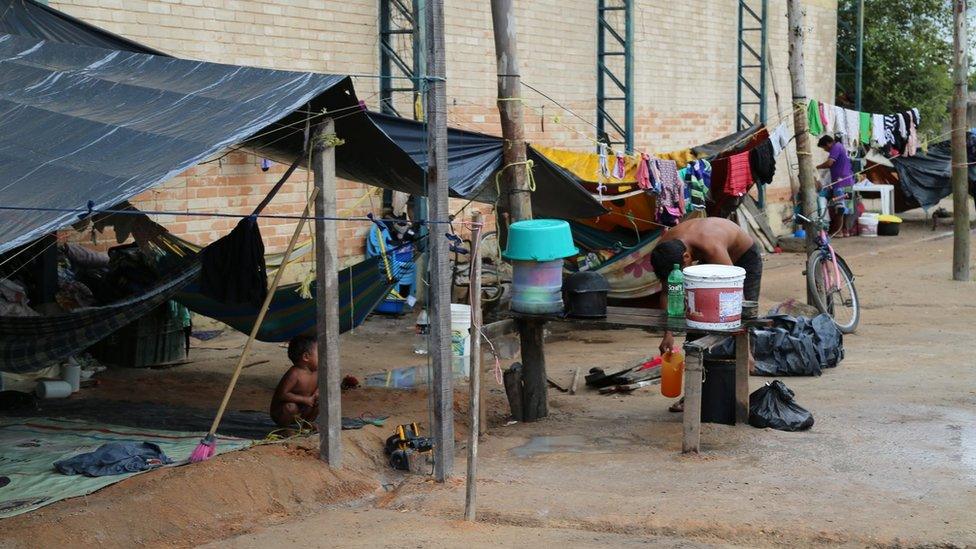
Members of the Warao indigenous community have left Venezuela because of food shortages
He, too, wants to find work in Boa Vista, but in this town of 300,000 people, and with few Venezuelans speaking Portuguese, opportunities are hard to come by.
"We can't see an end to this crisis in Venezuela in the near future," says Doriedson Ribeiro from Roraima Civil Defence.
"We're afraid more and more people will keep coming and it will get to a point where we won't be able to help anymore."
The number of Venezuelans arriving is showing no sign of easing.
And while for the hundreds of people in this shelter the future is unclear, they say that it still beats the alternative back home in Venezuela.
- Published2 July 2017
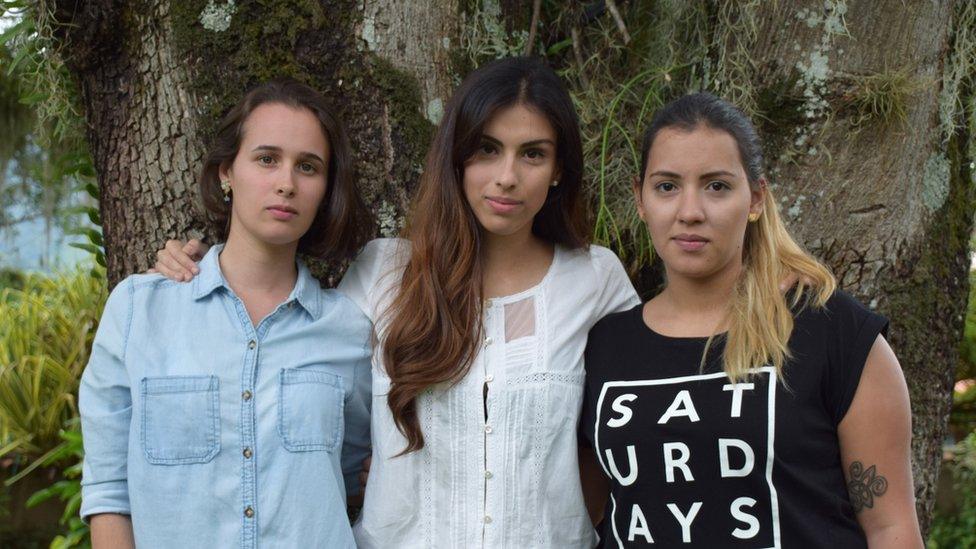
- Published22 May 2017
